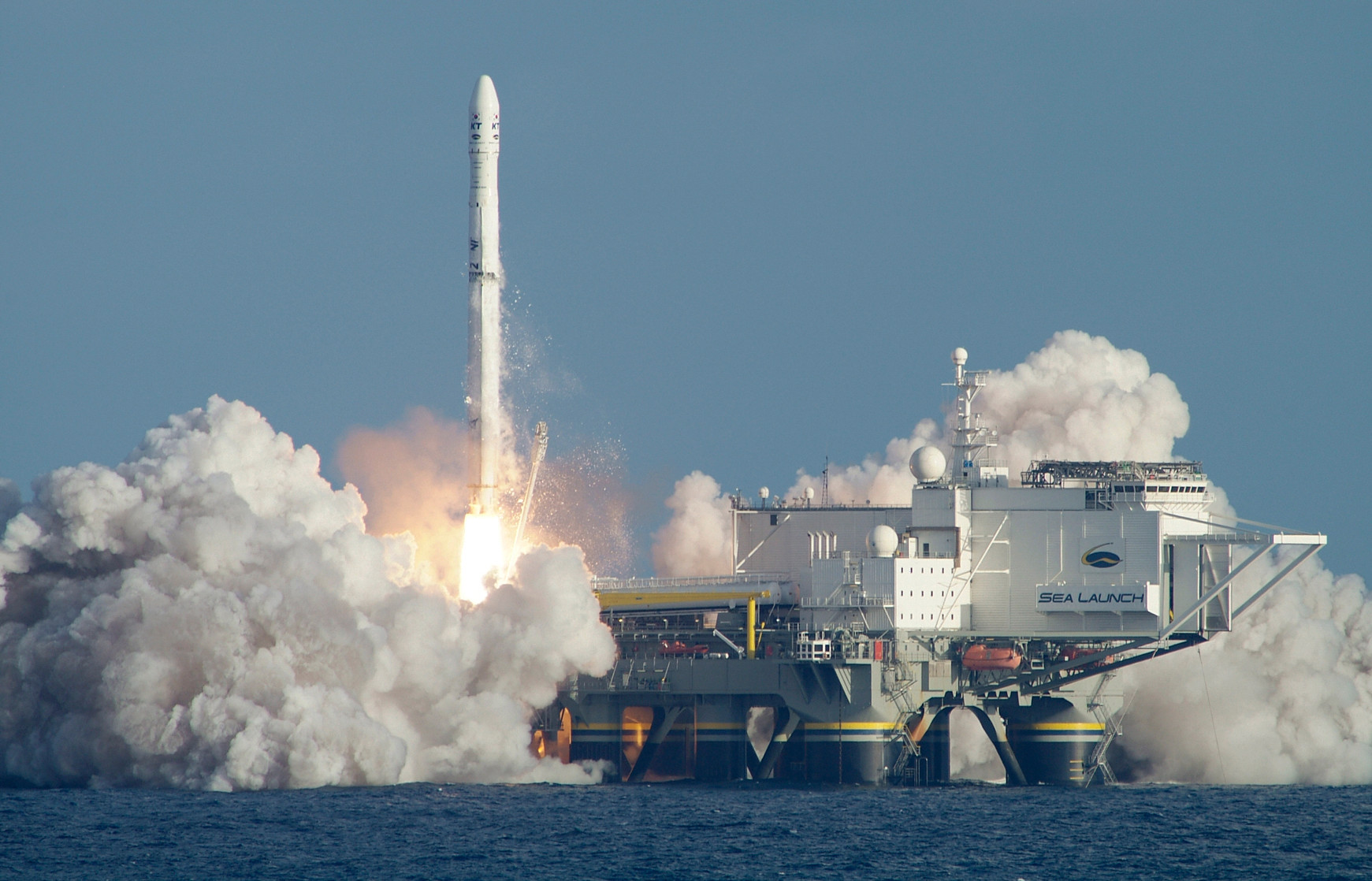Ruling Expected this Fall in Sea Launch Case

PARIS — A U.S. District Court is expected to rule early this fall whether Boeing’s attempt to collect $356 million from its Russian and Ukrainian former partners in the Sea Launch commercial-launch company is an open-and-shut case of contract breach or something more complicated, as the defendants claim.
Chicago-based Boeing has consistently argued – and did so again in a July 22 filling with the U.S. Securities and Exchange Commission – that its former partners, Yuzhnoye and YuzshMash of Ukraine and RSC Energia of Russia, signed documents committing them to a pro rata responsibility for the Sea Launch financing that was advanced by Boeing.
Frustrated in its attempts at having the Stockholm Chamber of Commerce rule on the case as arbiter, Boeing in February 2013 turned to the U.S. District Court for the Central District of California.
Boeing’s reasoning has not changed: its partners signed papers accepting their obligations for the debt Boeing incurred, and they have refused to pay, Boeing maintains. Boeing is asking the court for a summary judgment.
With the help of U.S. legal teams, the Ukrainian and Russian defendants have given the court what they say is a detailed history of oral agreements among the Sea Launch partners that contradict some of the documentation now brandished by Boeing.
In court documents filed by the three companies, and in a separate document provided by Yuzhnoye in response to SpaceNews inquiries, the defendants argue that Boeing “took advantage of the former Soviet block partners’ lack of business sophistication by convincing them to sign unfavorable contracts based on assurances that [Boeing] would never seek payment on the very guarantees at issue in this case,” in the words of an Energia court filing.
The partners “did not have the financial ability to retain U.S. counsel” in 1995, when the Sea Launch venture, based in Long Beach, California, was created, according to a Yuzhnoye document provided to SpaceNews.
Boeing and its former partners — partner Aker of Norway, which provided the converted oil platform Sea Launch uses to launch its Zenit 3SL rocket — agree on one thing: Sea Launch collapsed under the weight of unsustainable debt.
But the partners argue that much of this debt was incurred because Boeing in effect hired itself to do Sea Launch work at prices far above what the Russian and Ukrainian partners wanted to pay.
According to Yuzhnoye, cost overruns during Sea Launch’s development, production and operations were largely due to Boeing. Boeing development-phase work, mainly consisting of the rocket’s fairing and payload adapter, was 254 percent over the approved budget, Yuzhnoye said.
The cost of Boeing’s launch-support team grew by 180 percent in the three years ending in 2007, according to Yuzhnoye.
When Sea Launch operations began, Boeing, then the largest shareholder with 40 percent of the company, refused to allow Sea Launch to hire new people – labor that Yuzhnoye said could have been brought in at $20 an hour. Instead, Boeing insisted on loaning its own personnel to Sea Launch and billing the company $105 per hour.
What’s more, in 2006 Boeing had developed another route to the commercial launch sector in the form of United Launch Alliance, a joint venture of Boeing and Lockheed Martin formed mainly to address the U.S. government market. “At that point, Boeing’s interest in Sea Launch decreased significantly,” the Yuzhnoye document said.
The weight of oral assurances set against written documentation is something the district court judge will now need to assess. The Ukrainian and Russian partners do not contest the legitimacy of the relevant documents, only that the documents do not accurately describe the relationship.
Yuzhnoye, in its document, suggested that what it wants most is a day in court, a chance to describe what happened in Sea Launch’s early years and what Boeing, as lead partner, promised.
“This of course does not mean that everything shall be forgiven to Ukraine,” Yuzhnoye said in the document, saying that the same Boeing that “ran the company into financial disaster” should not be able to make claims of its partners without a court hearing both sides.
Sea Launch entered Chapter 11 bankruptcy proceedings in the United States and has since been purchased by units of Energia, Energia Logistics and Energia Overseas, with its headquarters moved to Switzerland.
Industry officials have said the Russian government — which owns Energia — is entertaining Sea Launch purchase offers by the Chinese government.
Whether any sale of Sea Launch’s assets would need to await a court judgment is not clear. One U.S. official familiar with the case said that, for now, Energia could dispose of Sea Launch as it sees fit, within the constraints of U.S. and Russian technology transfer regulations.
If Boeing were to win a judgment against Energia and Yuzhnoye, Boeing may attempt to seize the Sea Launch command ship and launch platform — both still in Long Beach. But even in this scenario a seizure might be complicated because Sea Launch’s current owners did not exist at the time of the Sea Launch bankruptcy.
Related
ncG1vNJzZmiroJawprrEsKpnm5%2BifLPBy6KloGWVrb2mr9Oem2asmJ7AbrLApaNmoZ5iwKatjKWYrqaTnXqkrdKeZg%3D%3D